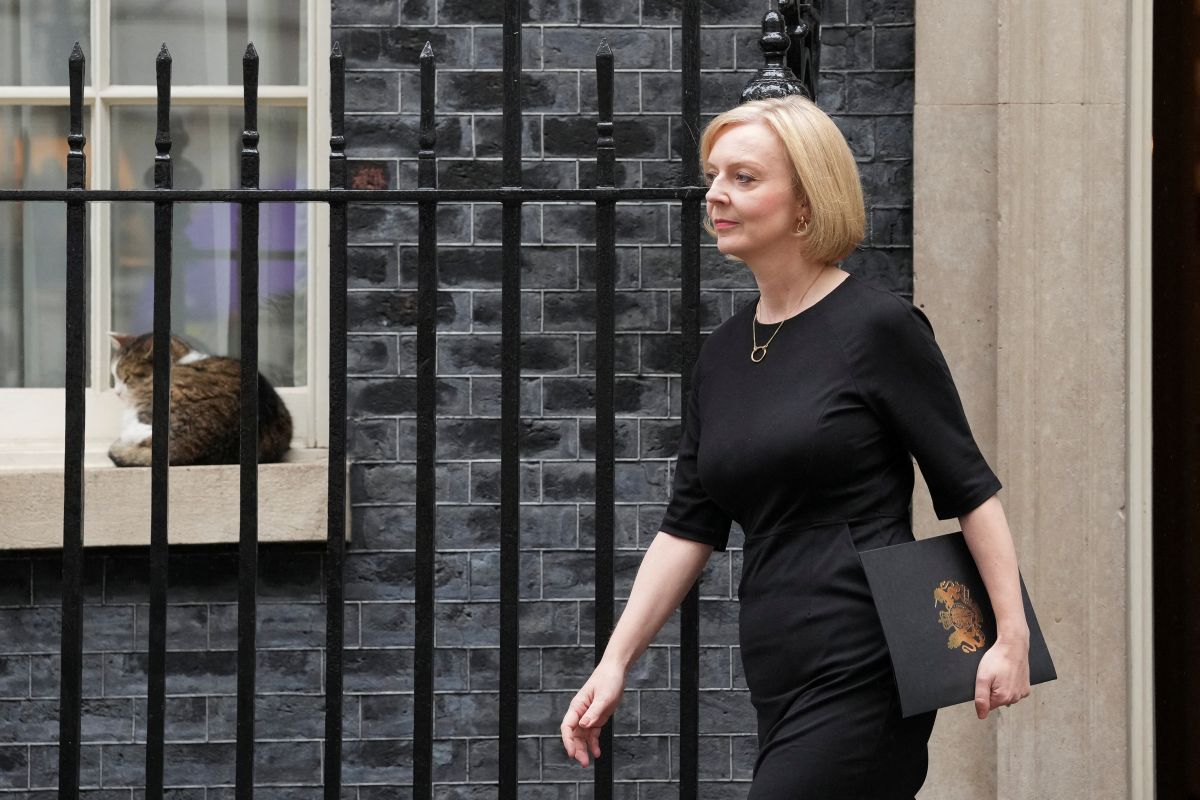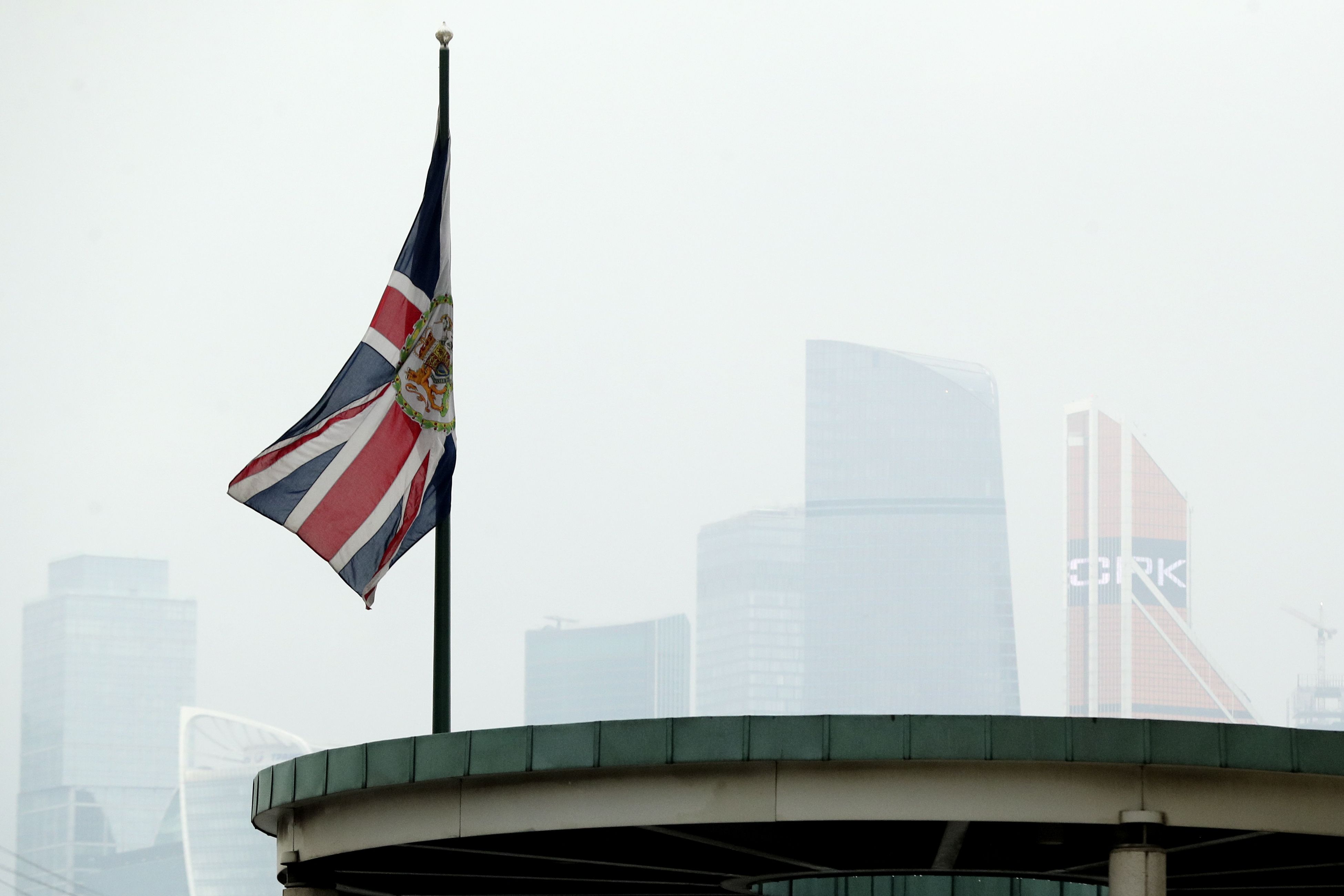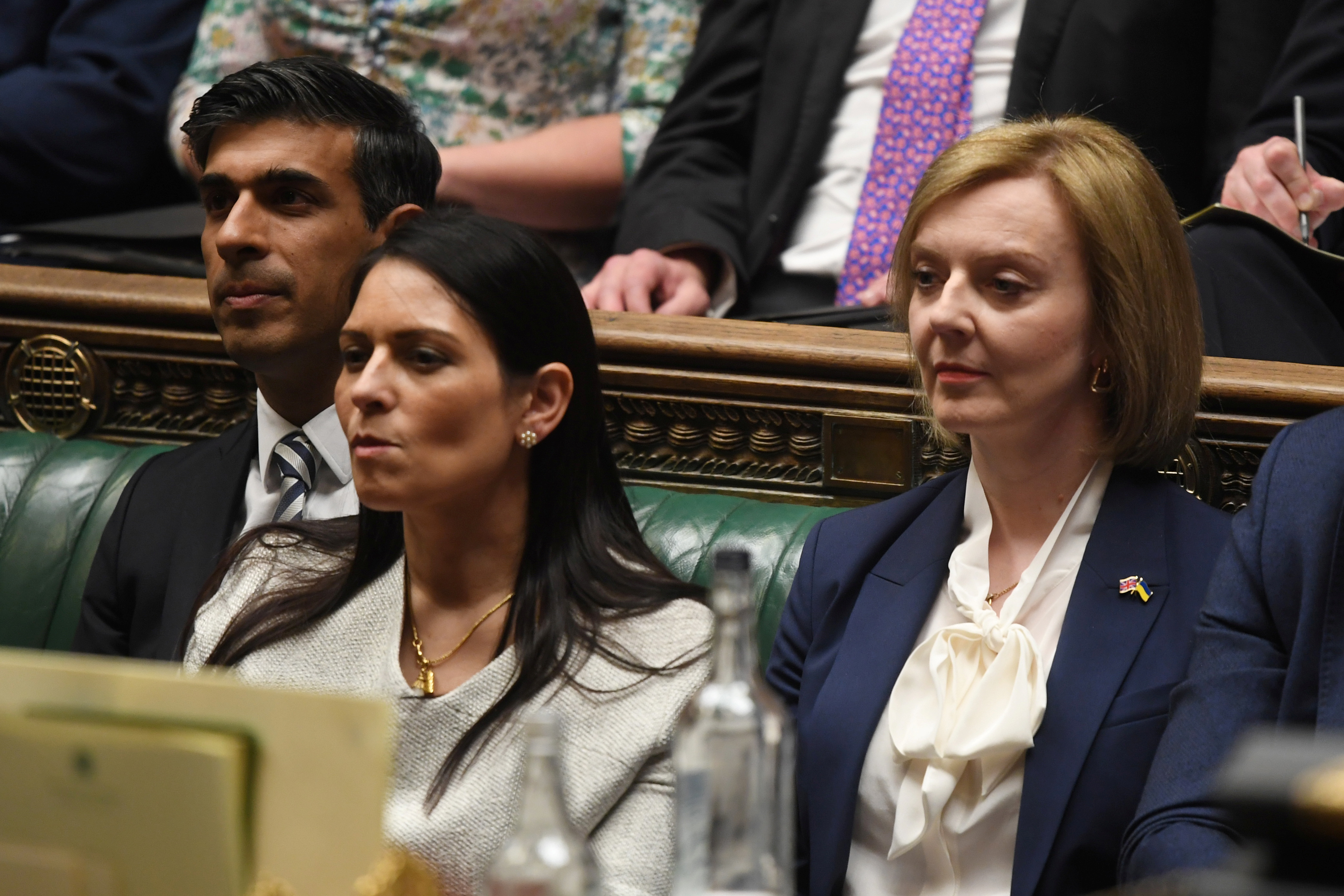The New British Government Faces a Perfect Storm
The UK’s new government of the Conservative Party under the leadership of Liz Truss formed on 6 September and began operating in the most difficult socio-economic conditions in several decades on top of the ongoing Russo-Ukrainian war. Although its programme is based on the 2019 election manifesto commissioned by Boris Johnson, the first decisions of the Truss government indicate a significant revision of the climate-change and economic policies of its predecessor and a high probability of aggravating disputes with the EU.
 MAJA SMIEJKOWSKA / Reuters / Forum
MAJA SMIEJKOWSKA / Reuters / Forum
What is the composition of the new government?
The government reflects the dominance of Brexit supporters within the Conservative Party and, at the same time, the moderately strong support for Truss. In the two-stage leadership election, 32% of conservative MPs and 57% of party members voted for her (against 38% and 43%, respectively, for Rishi Sunak). Consequently, the prime minister felt the need to nominate five of her opponents (Penny Mordaunt, Kemi Badenoch, Suella Braverman, Tom Tugendhat, and Nadhim Zahawi) to the new cabinet. Key departments were taken up by her close associates (including Deputy Prime Minister and Health and Social Care Secretary Thérèse Coffey, Chancellor of the Exchequer Kwasi Kwarteng, Foreign, Commonwealth and Development Secretary James Cleverly) as well as by representatives of the party’s right wing and/or former Johnson associates (including Home Secretary Braverman; Business, Energy and Industrial Strategy Secretary Jacob Rees-Mogg; International Trade Secretary Badenoch, and Northern Ireland Secretary Chris Heaton-Harris). Sunak supporters from the centrist wing are represented in the cabinet only by the Attorney General for England and Wales Michael Ellis. It is the UK’s youngest cabinet for several decades in terms of age and ministerial experience, and the most diverse in the top spots.
What are the challenges facing the new government in the UK?
UK public debt, inflation, the cost of living and of energy are at their highest levels since at least the 1970s and, considering the growing polling advantage of Labour, the Truss government will focus on domestic politics. In light of polling, the socio-economic issues as well as decline in real incomes, record-long National Health Service waiting lists (affecting around 10 million patients) and irregular immigration are the most important challenges in the perception of the British public. In response, Truss announced income-tax cuts for enterprises and individuals, cuts in energy taxes, investment incentives for business, cuts in public spending in some sectors, as well as deregulation. This will most likely reduce public investment in deprived regions. UK law is likely to be amended to facilitate the deportation of detained irregular immigrants under the agreement with Rwanda.
What will the new government do to resolve the energy crisis?
Despite the current UK presidency of COP26 and the deal reached at the 2021 Glasgow summit, Truss presented on 8 September solutions that would lead to a considerable slowdown in the pace of implementation of UK climate policy. Although the plan to achieve climate neutrality by 2050 is retained, she announced a review of how to implement it and indicated that the climate neutrality aim needs to be balanced against equivalent goals of increasing food and energy independence (e.g., the UK is to become a net energy exporter by 2040). A threefold increase in the energy price cap since October 2021 will be frozen at the level of £2,500 per annum (for two years for households and six months for business) thanks to co-financing of producers at the expense of issuing £100 billion in public debt (i.e., 150% of the value of pandemic economic aid programmes). As a short- and medium-term solution, the government indicated the intensification of hydrocarbon extraction from currently exploited domestic deposits and opening multiple new ones in the next 6-24 months (it has discussed issuing more than 100 new licences), including onshore shale deposits. The green levy on non-renewable energy also will be suspended. This would mean a reversal of the trend from the last dozen or so years. The ultimate solution is to accelerate the construction of nuclear power plants and the development of renewable energy storage technologies.
What are the government’s foreign policy priorities?
Truss will largely continue Johnson’s strategy outlined in the 2021 Integrated Review. She declared the continuation of the policy of containment of Russia by strengthening NATO’s Eastern Flank and maintaining a high level of military and economic aid to Ukraine, which was symbolised by her first telephone conversation with President Volodymyr Zelensky. Since February, the UK has provided Ukraine with weapons worth more than £2.5 billion as well as training for 10,000 Ukrainian troops in its centres. Cooperation with the U.S. and Indo-Pacific countries to contain China is to be deepened (re-classification of China from a “strategic competitor” to “the main source of military and security challenges” is being discussed). Policy continuity will be ensured by the continuation in office of Defence Secretary Ben Wallace and chief foreign policy advisor John Bew, and by the promotion of Cleverly to Foreign Secretary.
What challenges will the takeover of power by Truss bring about for EU-UK relations?
The Truss government will be determined to deliver the “Brexit dividend”. This means intensifying the dismantling of many regulations inherited from the EU. The British-French and consequently British-EU dispute over the influx of irregular immigrants through the English Channel is likely to escalate in case the UK partially repeals the European Convention on Human Rights, which is one of the stabilisers of the 2021 UK-EU Trade and Cooperation Agreement. Then, intensifying the crisis of the devolved power-sharing system in Northern Ireland may be used to justify the unilateral suspension of the Northern Ireland Protocol under its Art. 16 or through a UK act of parliament, which could lead to a trade war. There is also a growing conflict over the actual exclusion of UK from the Horizon programme.
What does Truss’s takeover of power mean for Poland?
The Russian attack highlighted the value of British involvement in Ukraine, on NATO’s Eastern Flank, and during the enlargement of the Alliance. The systematic increase in the importance of security policy, as demonstrated by the Polish Act on the National Defence and significant military spending, raises the importance of efficient bilateral and multilateral cooperation between Poland and the UK. While implementation of this cooperation within NATO is beyond doubt, it faces significant limitations in the EU context. Hence, from the Polish perspective, it is crucial for the EU and the UK to find solutions to the above-mentioned conflicts within the framework of the Withdrawal Agreement and Trade and Cooperation Agreement, in particular with regard to the Northern Ireland issue. The war in Ukraine indicates an urgent need for Poland to stimulate within the EU the development of cooperation mechanisms with the UK in the field of foreign and security policy.






